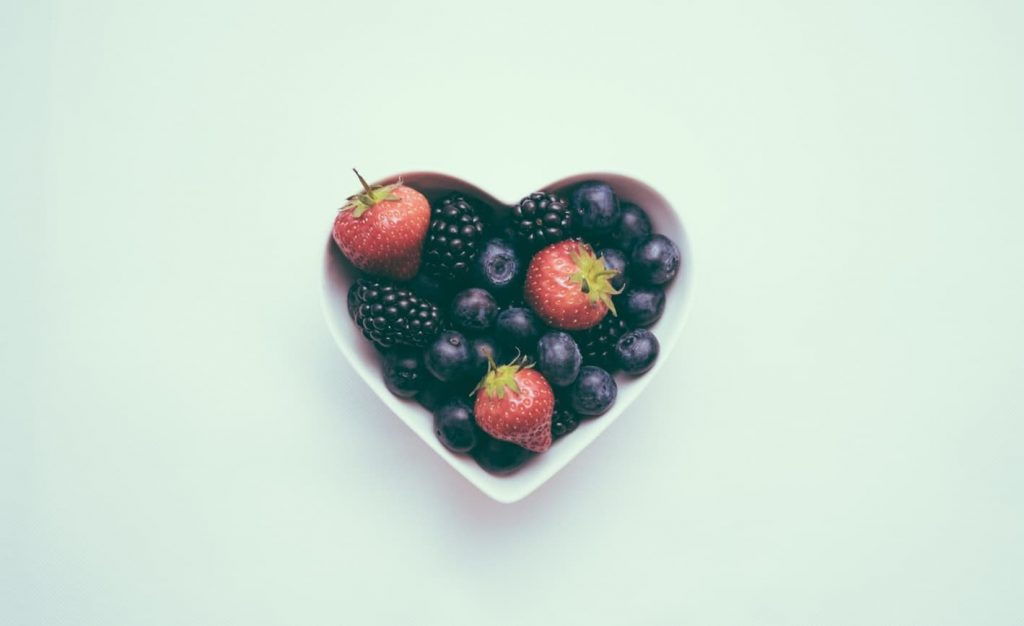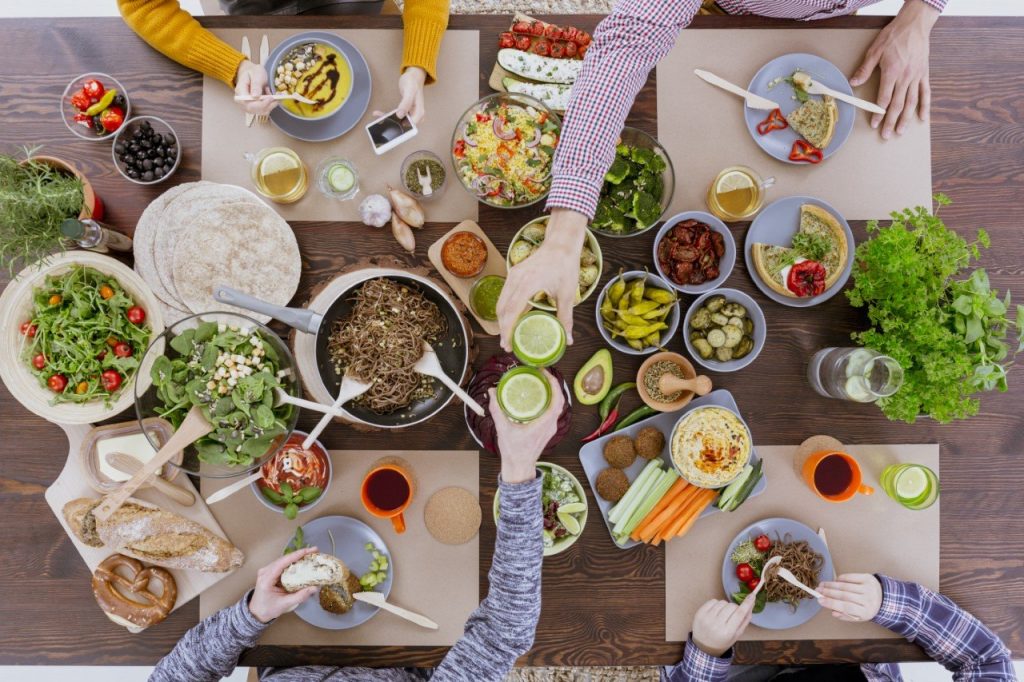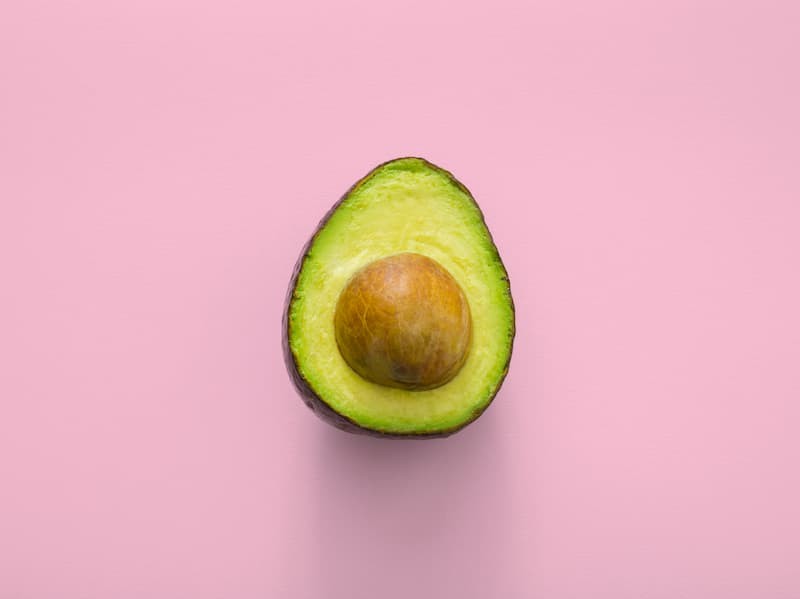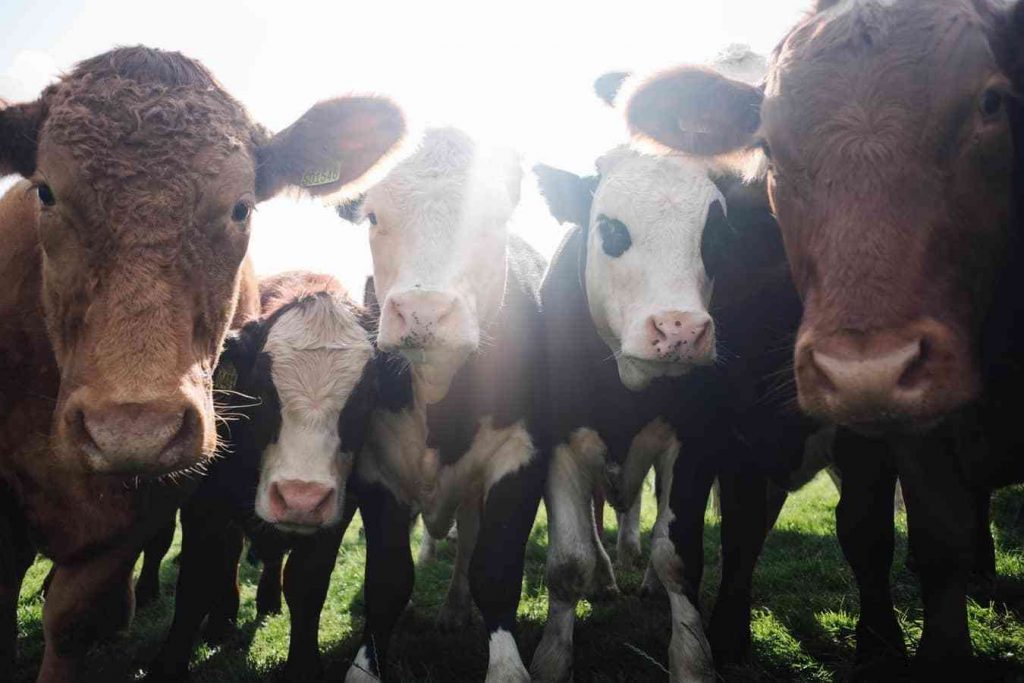
Is Everybody Going Vegan?
It sure seems like it. This January saw an estimated 400,000 people who signed up to take part in ‘Veganuary’, the plant-based new-year resolution that had everyone talking, myself included [1]. As the month has now been and gone, I’ve had some time to reflect on the plant-based lifestyle and the reasons I chose to take the plunge. I’ve got some questions to ask myself, and I’m going to be brutally honest about it. What did I learn? How did I feel? And quite simply put, could I go vegan for good? Let’s review, shall we.

Why I Wanted To Try It…
One of the reasons I chose to take on a month of veganism was out of pure curiosity. I wanted to know how it would affect my lifestyle, my physical and mental well-being and whether I’d gain any new culinary skills in the process. Ultimately, I wanted to test out how easy or challenging I’d find the plant-based diet and whether it was something I’d be willing to take on full-time.
It’s Harder Than It Looks!
No, I didn’t become a chef over-night, but I did have to be more conscious about the food decisions I made which ultimately meant a whole lot of cooking and trying out different recipes. This was really great… for like a week. When I started out I felt motivated, I wanted to cook from scratch as much as possible which meant I completely underestimated how much time it would take. The Instagram accounts I was following all made it look so easy (until I realised that many of these people were making this food for a living)!
It Can Take a While For Your Body to Adjust to a Plant-Based Diet
This was definitely a challenge, I found myself picking up obsessive food habits and feeling like I was on a January diet or health kick more than anything, trying to make sure I met my carb and protein needs for the day. Consequently, I often went to bed feeling hungry and dissatisfied during the month. Critics might say I simply didn’t eat enough, or wasn’t doing the vegan diet “properly”, whatever that means. In that case, I wonder how accessible it is for the average person to incorporate these changes into their lifestyle- I felt like I was constantly in the kitchen! Maybe this is something that comes instinctively to some people or gradually gets easier over time but the thought of trying to make these changes whilst feeding a family, working long hours, or struggling to afford the plethora of ingredients needed to make a well-balanced vegan meal, definitely crossed my mind.
Incorporating vegan supplements containing antioxidants is an alternative way to get all the necessary nutrients and boost energy levels, see here for more information about all-in-one antioxidant supplements. But what about when you’re not eating at home?
Eating Out as a Vegan Presented a New Set of Challenges
Another challenge I somewhat under-estimated was eating out. Strangely enough, my biggest difficulty was not in my food options. Lots of restaurants and pubs had clocked on to the fact that Veganuary was a big-seller so I didn’t struggle there by any means. What I did find disconcerting was that it put into perspective my own sense of privilege. Eating out isn’t accessible to everyone and I’m lucky enough to be able to afford the odd meal out. When eating out as a vegan, I felt like I was taking this privilege for granted. It’s a really difficult one to explain but I felt guilty for substituting things on the menu, as if trying to make ethical choices somehow equates to being a fussy eater. When you’re ordering off the menu but trying to change this, or asking to have it without the eggs or the cheese or the milk…it does kind of feel that way. It got me thinking about people who use food banks and how they probably aren’t checking the label on the back to see if it contains dairy.
Being part of that vegan community, if only for a month, highlighted my own self-privilege. Those who preach that the plant-based lifestyle is the only way forwards are completely disregarding the massive class barrier to food. It’s obviously a much wider discussion to be had but it did get me thinking about the accessibility issues surrounding the vegan lifestyle that I maybe wouldn’t have considered had I not taken it on for the month as it’s something that is so rarely discussed by plant-based advocates.
What Goes in, Must Come Out…
My last challenge has got to be mentioned for the honesty of this article, but let’s make it brief. One of the biggest physical changes my body went through during my month of veganism had to do with my toilet habits. Let’s just say all that fibre had an effect!

Eating Greens to be Green and Reducing my Environmental Impact
This was hands-down, my favourite thing about being vegan for the month and what I’ll be taking away from the experience. It felt really great not to be contributing to the massive amount of environmental waste that the meat and dairy industry create. I talk a lot more in depth about it in my previous article, but just to reiterate- being vegan is maybe about the best thing you can single-handedly do for the planet. In fact, an Oxford study confirms this, stating that you can reduce your carbon footprint by up to 73 per cent if you choose to ditch the animal products. [2]
Could it really be that simple though? Well…. yes…. and also no. Recent research into plant-based milks have found that there are some negative environmental impacts of popular dairy alternatives such as almond, coconut and even rice milk. [3] Then there’s the argument that it isn’t the type of food you are eating which can be considered in its environmental impact but where it is sourced from. For example, you could be filling your shopping trolley with lots of imported foods from all over the world including all the fruits and vegetables that typically make up a plant-based diet that may have travelled thousands of miles to get to you. Then there’s those who might be buying their dairy products locally, from a farm shop down the road which is surely that little bit better for the environment?
There are other ethical and sustainable arguments to be had about the push for vegan food. For instance, Western demand for plant-based staples like quinoa and avocados have resulted in prices that have become unaffordable for the local people from where the foods have originated, who have long relied upon these foods in their diet. [4] In Mexico, which acts as a supplier for around 45% of the world’s avocados, more money has now been made from exporting the fruit than it has made from petroleum. As a result, it’s led to illegal deforestation in a bid to plant more and more avocado trees, not to mention a rise in gang crime and brutality which surrounds the trade.
Reducing Unnecessary Waste in Other Areas of my Life
How much of this responsibility should fall upon the individual consumer or is there a much bigger argument to be had about the wider effects of consumerism? I think it’s a bit of both. In my experience, I did find that being more environmentally conscious in my diet naturally led me to be more aware of other issues concerning sustainability. Simple things like making the effort to recycle more and reducing the amount of clothes I ordered online came as a natural follow-up to being vegan because environmental impacts were already at the forefront of my mind.
Doing it For The Animals
The main reason I chose to undergo a month of veganism was for the animals. I’ve previously been vegetarian in the past and don’t have a lot of meat in my diet as it is, so it was an easy sell for me. For too long I was in denial that the meat industry wasn’t the only problem. Having done my research prior to my month of veganism, I’d learned that there are other ways in which animals are brutally kept and treated in inhumane ways which points the finger at mass dairy production.

Vegan/Vegetarian/Flexetarian: What’s The Difference!?
I really appreciated the vegetarian aspect of veganism. I liked not eating meat and found that I didn’t crave it nearly half as much as I originally thought I would. What I really struggled with was the vegan aspect, which I found a little harder to deal with. I didn’t like substituting honey for maple syrup or having scrambled tofu as an egg replacement. The truth is, it just didn’t seem to taste as good or feel as good (I think my body may not have got on too well with the tofu)! They weren’t necessarily bad options, and that’s not to say I wouldn’t enjoy eating vegan substitutes on the occasion- but to eat them daily really took its toll on my body and mind. I didn’t like having to constantly check labels for ingredients or feel guilty when I ate something that accidentally had a trace of milk in it. I ended up frustrated and this frustration didn’t seem to lead me back to the moral component of the argument that it was all about the animals.
Overall, I don’t deny that there’s a strong moral argument to be made for the vegan lifestyle. However, I also think that little changes can be made to shop ethically even if you are still using dairy products. Buying eggs from small farms or buying honey locally can make a difference too, and it might be something that’s easier to add into your lifestyle than going fully vegan.
So, it’s no wonder that the flexitarian diet has become so popular in recent years. It might seem like just another fad, but many dieticians are backing the idea that this is the most beneficial diet to adopt and the fact that it doesn’t cut out any major food groups means it could be an appealing option for the masses. Unlike a vegan or vegetarian diet, flexitarian eating can include meat, fish and other animal produce in moderation. However, it is mostly made up of plant-based foods and incorporates many of the same principles found in the Vegan diet.

Was it Worth it?
The Vegan lifestyle seems to be a hot topic these days, but how easily accessible, affordable and beneficial it is for the average individual to make this change? The transition period from eating meat and dairy to going fully vegan is often glossed over by media accounts, giving the impression that the process is smooth, easily attainable and worth it, no matter the side effects.
The aim of this article was to give an honest representation of how it felt to make that change, and give a personal overview of my vegan experience, including any positive or negative experiences that I picked up on. It’s worth stating that this is an individual account and therefore, my take on the matter might not be applicable to anyone else’s experience.
If asked whether I’d recommend trying a Vegan diet, I’d probably say yes. I think it’s worth trying to see how you react to the lifestyle changes and you might find it works really well for you. However, unlike some plant-based advocates, I would say there are exceptions to this rule. It is really important that you feel mentally and physically well enough to try the lifestyle. From my experience, I can see how plant-based eating can become a negative experience, particularly in the fixation around food which could easily lead on to disordered eating.
It’s also worth getting the all-clear from your doctor. After my month of trying the vegan diet, I took a blood test and discovered that my iron levels were low which could have led to some of the adverse side effects I experienced during the month and meant I should have been taking iron supplements (which often are not vegan!). Each individual case will be different, but I was lucky enough to receive tailored health advice whilst working at e-Surgery which meant I had access to supplements such as vitamin B-12 and vitamin D which I took throughout the month. These are vitamins that many people are now deficient in, regardless of whether they eat meat, but is particularly useful to add into your diet if you are going vegan.
The recent rise of Vegan and plant-diet has also led to more people wanted to know where not only their food but also their medication comes from. You can find our list of common drug ingredients and their vegan status here.
Ultimately, whatever lifestyle or dietary changes you do make, put your health first.
Sources
[1] Veganuary signed up record 400,000 people | The Guardian
[2] Veganism is ‘single biggest way’ to reduce our environmental Impact | The Independent
[3] Almonds are out. Dairy is a disaster. What should we drink? | The Guardian
[4] Why Veganism isn’t as Environmentally Friendly as you Might Think | The Independent
Further Reading
- Go Vegan in 30 Days With The 30 Day Vegan Pledge | The Vegan Society
- 8 Lazy Ways To Be Environmentally Friendly | Friends Of The Earth
- Thinking About Going Vegan? Here’s How To Do It Healthily? | PatientInfo






